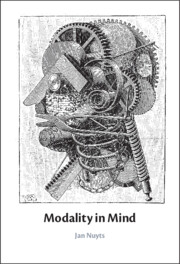Refine search
Actions for selected content:
2 results
1 - The Cognitive-Functional Approach
-
- Book:
- Modality in Mind
- Published online:
- 25 March 2025
- Print publication:
- 27 March 2025, pp 7-35
-
- Chapter
- Export citation

Modality in Mind
-
- Published online:
- 25 March 2025
- Print publication:
- 27 March 2025
